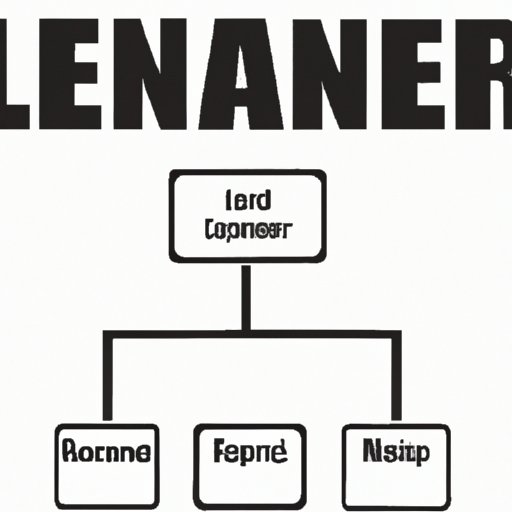Introduction
Referent power is a type of power that exists in leaders who have earned respect and admiration from their followers. It involves inspiring loyalty through personal characteristics such as charisma, trustworthiness, and honesty. Referent power has become increasingly important in today’s business environment, as organizations strive to create strong and effective teams. In this article, we will explore what referent power is, its components, and the benefits and drawbacks of using it in leadership roles. We will also examine how referent power influences different types of leadership styles, and compare it to other forms of power, such as charismatic and transactional leadership.
An Overview of Referent Power in Leadership
In order to understand how referent power works in leadership positions, it is important to first define what it is. Referent power is a type of influence that is based on admiration, respect, and loyalty that a leader has earned from his or her followers. It is often referred to as “charisma” and is seen as a form of non-coercive power that relies on the leader’s ability to inspire and motivate others. Referent power is different from other forms of power, such as coercive and reward power, because it does not rely on external factors such as money, rewards, or punishments.
Referent power is composed of several components, including trust, admiration, and respect. Trust is essential for a leader to gain referent power, as followers must believe that the leader is trustworthy and credible. Admiration for the leader is also important, as followers must view the leader in a positive light in order to be motivated by him or her. Finally, respect for the leader is key, as followers must feel that their leader is worthy of their respect in order for them to remain loyal.
Exploring the Benefits and Drawbacks of Referent Power
Referent power can be beneficial in certain situations, as it allows a leader to effectively motivate and lead his or her team. For example, a leader with referent power can inspire loyalty and commitment from his or her followers, leading to increased productivity and better team performance. In addition, referent power can help to create an open and trusting environment, as followers are more likely to share their ideas and opinions if they feel respected and admired by their leader.
However, there are some drawbacks to using referent power in leadership roles. For example, followers may become too dependent on the leader, which can reduce their autonomy and creativity. In addition, it can be difficult for leaders to maintain their referent power over time, as their followers may become less inspired by their leadership. Finally, referent power can create an atmosphere of favoritism, as some followers may receive special treatment due to their admiration for the leader.

Examining How Referent Power Influences Leadership
Referent power can influence different types of leadership styles, depending on the situation. For example, in a transformational leadership style, a leader with referent power can use their influence to encourage followers to think creatively and take initiative. On the other hand, in a transactional leadership style, a leader with referent power can use their influence to reward followers for meeting expectations and completing tasks. In both cases, referent power can be used to increase motivation and commitment from followers.
It is important to note that referent power should not be used as a substitute for other forms of power. Instead, it should be used in combination with other forms of power, such as reward and coercive power, in order to create an effective and balanced leadership style. For example, a leader can use referent power to inspire loyalty and commitment, while also using reward and coercive power to ensure that followers meet expectations and complete tasks.

A Comparison of Referent Power with Other Forms of Leadership
Referent power can be compared to other forms of power, such as charismatic and transactional leadership. Charismatic leadership is similar to referent power in that it relies on the leader’s ability to inspire and motivate followers. However, charismatic leadership also involves providing vision and direction to followers, which is not necessarily a component of referent power. In contrast, transactional leadership is focused on setting goals and expectations, rewarding followers for meeting those expectations, and punishing them for not meeting those expectations. This is different from referent power, as it is more goal-oriented and relies heavily on external rewards and punishments.

Case Studies on Referent Power in Leadership
To further illustrate how referent power works in leadership roles, let us look at two case studies. The first case study involves John Doe, a manager in a large organization. John has been able to use his referent power to successfully motivate and lead his team. He is known for being trustworthy and honest, and his team members view him as a role model. As a result, they are highly committed to achieving their goals and are willing to go the extra mile for John. In this case, John’s referent power has enabled him to create a strong and effective team.
The second case study involves Jane Smith, a supervisor in a small company. Jane has been able to use her referent power to create an open and collaborative environment. She is known for being supportive and caring, and her employees feel comfortable sharing their ideas and opinions with her. As a result, they are highly productive and engaged in their work. In this case, Jane’s referent power has enabled her to foster an environment of trust and collaboration.
Conclusion
In conclusion, referent power is a type of power that exists in leaders who have earned respect and admiration from their followers. It involves inspiring loyalty through personal characteristics such as charisma, trustworthiness, and honesty. Referent power can be beneficial in certain situations, as it allows a leader to effectively motivate and lead his or her team. It can also influence different types of leadership styles, such as transformational and transactional leadership. However, there are some drawbacks to using referent power, such as reduced autonomy and favoritism. The two case studies provided above demonstrate how referent power can be used to create strong and effective teams.
Overall, referent power is an important tool for leaders to have in their arsenal. When used correctly, it can help to create an open and trusting environment, motivate and inspire followers, and foster collaboration and teamwork. However, it should not be used as a substitute for other forms of power, such as reward and coercive power.
(Note: Is this article not meeting your expectations? Do you have knowledge or insights to share? Unlock new opportunities and expand your reach by joining our authors team. Click Registration to join us and share your expertise with our readers.)
